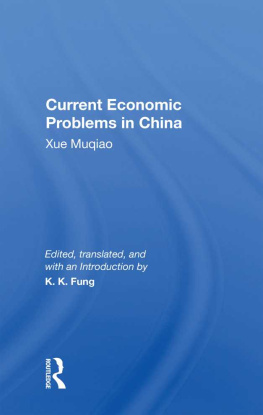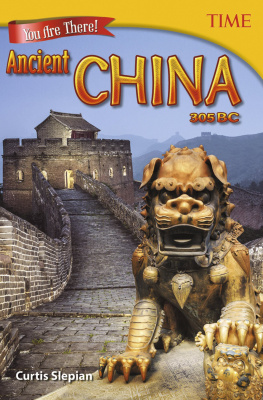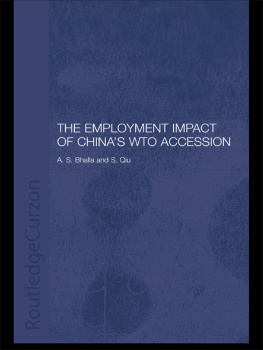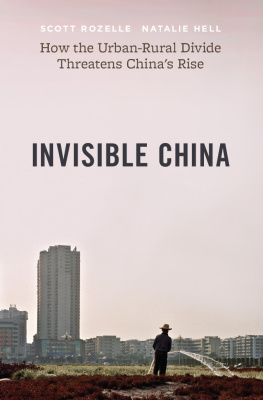Curtis Ullerich - Rural Employment manpower problems in China
Here you can read online Curtis Ullerich - Rural Employment manpower problems in China full text of the book (entire story) in english for free. Download pdf and epub, get meaning, cover and reviews about this ebook. year: 2017, publisher: Routledge, genre: Politics. Description of the work, (preface) as well as reviews are available. Best literature library LitArk.com created for fans of good reading and offers a wide selection of genres:
Romance novel
Science fiction
Adventure
Detective
Science
History
Home and family
Prose
Art
Politics
Computer
Non-fiction
Religion
Business
Children
Humor
Choose a favorite category and find really read worthwhile books. Enjoy immersion in the world of imagination, feel the emotions of the characters or learn something new for yourself, make an fascinating discovery.

- Book:Rural Employment manpower problems in China
- Author:
- Publisher:Routledge
- Genre:
- Year:2017
- Rating:3 / 5
- Favourites:Add to favourites
- Your mark:
- 60
- 1
- 2
- 3
- 4
- 5
Rural Employment manpower problems in China: summary, description and annotation
We offer to read an annotation, description, summary or preface (depends on what the author of the book "Rural Employment manpower problems in China" wrote himself). If you haven't found the necessary information about the book — write in the comments, we will try to find it.
Rural Employment manpower problems in China — read online for free the complete book (whole text) full work
Below is the text of the book, divided by pages. System saving the place of the last page read, allows you to conveniently read the book "Rural Employment manpower problems in China" online for free, without having to search again every time where you left off. Put a bookmark, and you can go to the page where you finished reading at any time.
Font size:
Interval:
Bookmark:

 OF ASIAN AFFAIRS / HAMBURG
OF ASIAN AFFAIRS / HAMBURG
 A publication of the Institute of Asian Affairs, Hamburg
A publication of the Institute of Asian Affairs, Hamburg2 Park Square, Milton Park, Abingdon, Oxon OX14 4RN
711 Third Avenue, New York, NY 10017, USA
No responsibility is assumed by the publisher for any injury and/or damage to persons or property as a matter of products liability, negligence or otherwise, or from any use of operation of any methods, products, instructions or ideas contained in the material herein.
The publisher has gone to great lengths to ensure the quality of this reprint but points out that some imperfections in the original copies may be apparent.
The publisher has made every effort to trace copyright holders and welcomes correspondence from those they have been unable to contact.
Introduction
- China has succeeded, after gradually breaking away from the Soviet model of socialist reconstruction, in making a full adaptation of what was originally an utterly foreign concept of socio-economic development which appears to work well, in integrating into it all the essential historical and modern elements of national life and production, and in coming up with a synthesis which is sui generis .
- On her way, she has encountered problems and obstacles which are exemplary of those most nations of the Third World have to face in their struggle out of underdevelopment, inequality, and dependence and toward modernization and prosperity.
- In the virtual absence of alternative solutions which have withstood the test of reality, her methods are prototypical for approaches which appear apt to bring about lasting increases in national production, more social justice for all classes of the population and a genuine qualitative improvement of the nation's material well-being.
Font size:
Interval:
Bookmark:
Similar books «Rural Employment manpower problems in China»
Look at similar books to Rural Employment manpower problems in China. We have selected literature similar in name and meaning in the hope of providing readers with more options to find new, interesting, not yet read works.
Discussion, reviews of the book Rural Employment manpower problems in China and just readers' own opinions. Leave your comments, write what you think about the work, its meaning or the main characters. Specify what exactly you liked and what you didn't like, and why you think so.






